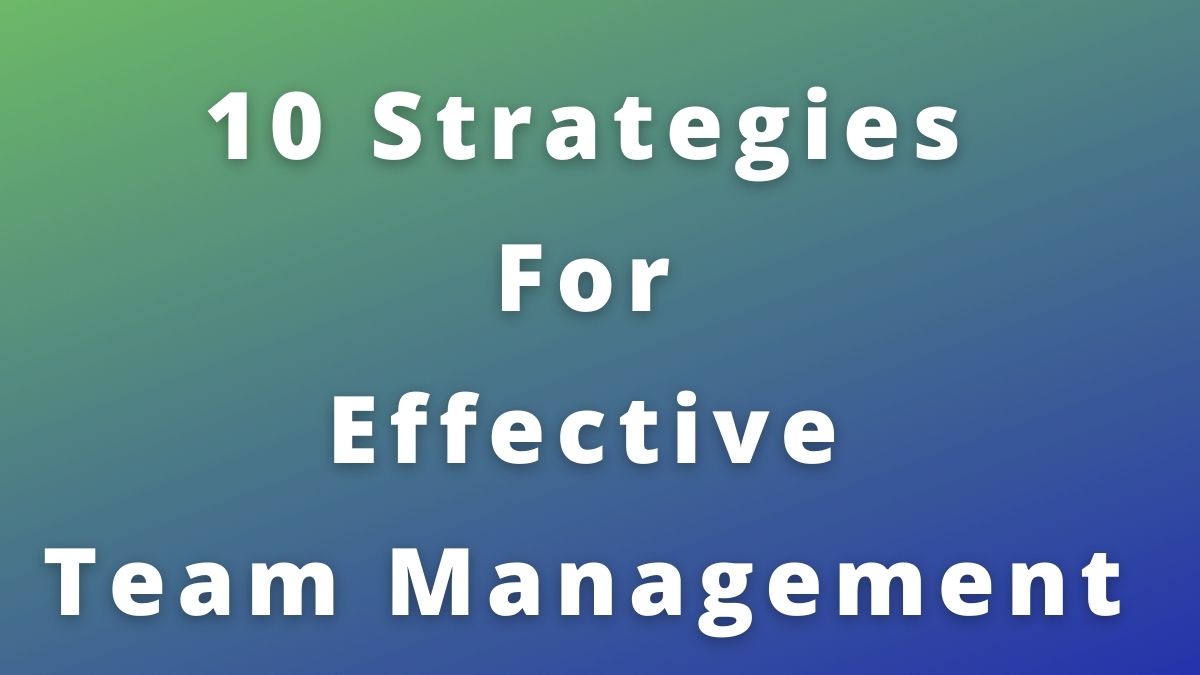
Effective Strategies for Managing a Team: Unlocking Success through Collaboration and Leadership
Introduction
Managing a team is a complex task that requires a combination of strong leadership, effective communication, and a deep understanding of individual strengths and dynamics. In this article, we will explore some proven strategies that can help managers navigate challenges and foster a productive and harmonious team environment. By implementing these strategies, leaders can inspire their team members, promote collaboration, and achieve remarkable results.
Establish Clear Goals and Expectations
The foundation of effective team management lies in setting clear goals and expectations. Clearly define the team’s purpose, objectives, and key performance indicators (KPIs). Communicate these goals to each team member, ensuring they understand their role in achieving them. By aligning everyone’s efforts toward a common vision, you create a sense of purpose and direction.
Foster Open and Transparent Communication
Open communication is vital for team success. Encourage regular and transparent communication channels, both formal and informal. Foster an environment where team members feel comfortable sharing their ideas, concerns, and feedback. Actively listen to their perspectives and provide timely and constructive feedback. Effective communication builds trust, enhances collaboration, and resolves conflicts promptly.
Build a Diverse and Inclusive Team
Diversity and inclusion bring valuable perspectives and enhance team performance. Build a team with diverse backgrounds, skills, and experiences. Embrace different viewpoints and encourage inclusive decision-making processes. Promote an environment where everyone feels valued and respected. By leveraging the strengths of each team member, you foster innovation and creativity.
Encourage Collaboration and Teamwork
Teamwork is the cornerstone of successful team management. Create opportunities for collaboration by assigning projects that require a collective effort. Foster a culture of teamwork by recognizing and rewarding collaborative achievements. Encourage cross-functional collaboration to promote knowledge-sharing and a broader understanding of the organization’s goals.
Provide Adequate Resources and Support
Equip your team with the necessary resources, tools, and training to excel in their roles. Address any skill gaps by providing relevant training and development opportunities. Be accessible and offer support whenever team members encounter challenges. By empowering your team with the right resources, you enable them to perform at their best and achieve exceptional results.
Delegate and Empower
Effective delegation is crucial for team management. Delegate tasks based on individual strengths, skills, and development goals. Trust your team members to take ownership and make decisions within their areas of responsibility. Empower them by granting autonomy, promoting creativity, and encouraging initiative. Delegation not only relieves your workload but also fosters professional growth and builds a sense of ownership among team members.
Recognize and Celebrate Achievements
Regularly acknowledge and celebrate the achievements of individuals and the team as a whole. Recognize exceptional performance, milestones, and significant contributions. Celebrations can take various forms, such as public appreciation, rewards, or team outings. By acknowledging and appreciating the efforts of your team, you boost morale, motivation, and loyalty.
Conclusion
Effectively managing a team requires a combination of strategic thinking, effective communication, and fostering a positive team culture. By implementing these strategies, leaders can create an environment that nurtures collaboration, innovation, and high performance. Remember that team dynamics and needs may evolve over time, so it is essential to remain adaptable and responsive. By consistently investing in team management strategies, leaders can unlock the full potential of their teams and achieve remarkable results.

